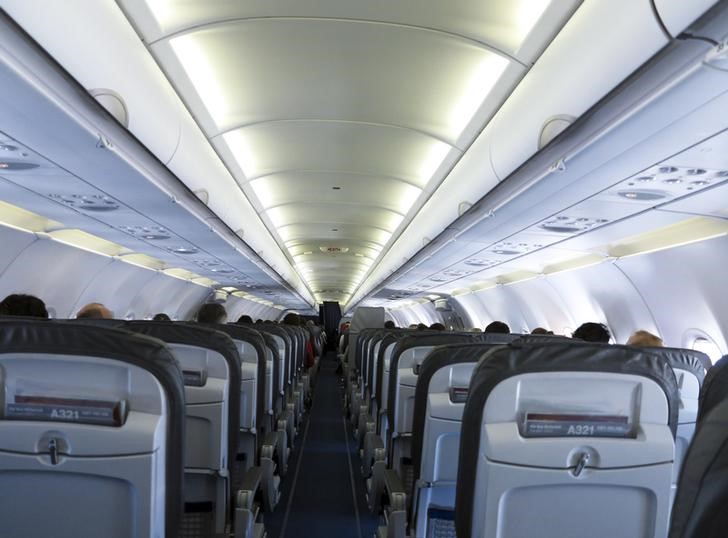By Allison Lampert and Jamie Freed
MONTREAL/SINGAPORE, April 27 (Reuters) - New global packaging standards expected in late 2018 will allow lithium-ion batteries back into passenger plane cargo holds, pending design and regulatory approval, but some airlines say the new rule overlooks other safety concerns.
It will reverse a 2016 suspension due to fire risks, but some airlines argue that packaging alone will not fully protect against cargo battery fires because battery shipments are sometimes mislabeled. Airlines and battery makers want jet designs to factor in better cargo fire-safety measures.
Carriers interviewed by Reuters described finding packages of mislabeled lithium-ion batteries, often by shippers trying to avert the ban. Hong Kong's Civil Aviation Department, the regulator of the world's busiest air cargo hub, flagged cases of battery packages mislabeled in manifests as clothes, shoes and toys in a 2017 notice to airlines.
It is not clear how many mislabeled battery packages are transported by air, or discovered, but carriers fear it could continue as some shippers try to avoid the anticipated higher costs of proper packaging.
"The sheer number of batteries produced is growing and is measured in the billions," said Association of Asia Pacific Airlines Director-General Andrew Herdman. "There is a problem with false declaration or non-declaration of such items."
Hong Kong-based Cathay Pacific Airways Ltd 0293.HK conducts random checks to ensure packages are properly labeled, but it can't "catch everyone," Rick Howell, general manager group safety and security, said at a recent Montreal safety conference.
That's why Howell and others are also calling for new jet models to include better cargo fire safety protections since planes were designed before the battery threat.
"Cargo holds of modern planes are lined with materials and equipped with fire suppression systems that aren't designed to contain a lithium ion battery fire," a spokeswoman for Germany's Lufthansa LHAG.DE said.
In January, the U.S. Federal Aviation Administration identified at least 191 "events" involving lithium batteries producing smoke, fire, extreme heat or explosions in the air or at airports around the world since 1991.
While there have been no reported passenger deaths due to a battery fire, lithium-ion batteries were a contributing factor in the crash of an Asiana Airlines Inc 020560.KS flight that killed the two pilots of a Boeing (NYSE:BA) 747 freighter in 2011, according to a report by Korea's Aviation and Railway Accident Investigation Board. The source of the fire that led to the crash was not determined, but the batteries were a factor because they were so flammable, the report said.
Both Boeing and Airbus AIR.PA said that they are working with industry to improve aviation safety and already meet or surpass standards.
U.S.-based PRBA, the rechargeable battery association, supports "robust" and "cost-effective" packaging standards but also believes planemakers should factor into their designs "that large volumes of dangerous goods are transported by air," director George Kerchner said.
New models such as Boeing's BA.N proposed mid-market jet could include modern fire-resistant materials as added protection, airlines said.
Aviation working groups are weighing new standards to improve cargo safety, but talks are at an early stage, Rudy Quevedo, the International Air Transport Association's (IATA) director of safety, said.
Modernizing planes would deliver an extra line of defense against fires but add costs to an industry already investing heavily in safety.
But airplane design alone is not the most effective way to prevent potential lithium-ion cargo hold battery fires, the FAA believes.
"Operations, hazardous materials and airplane design have to work as a system, with each element contributing to safety, but no one element providing all the mitigations," a FAA spokesman said.
